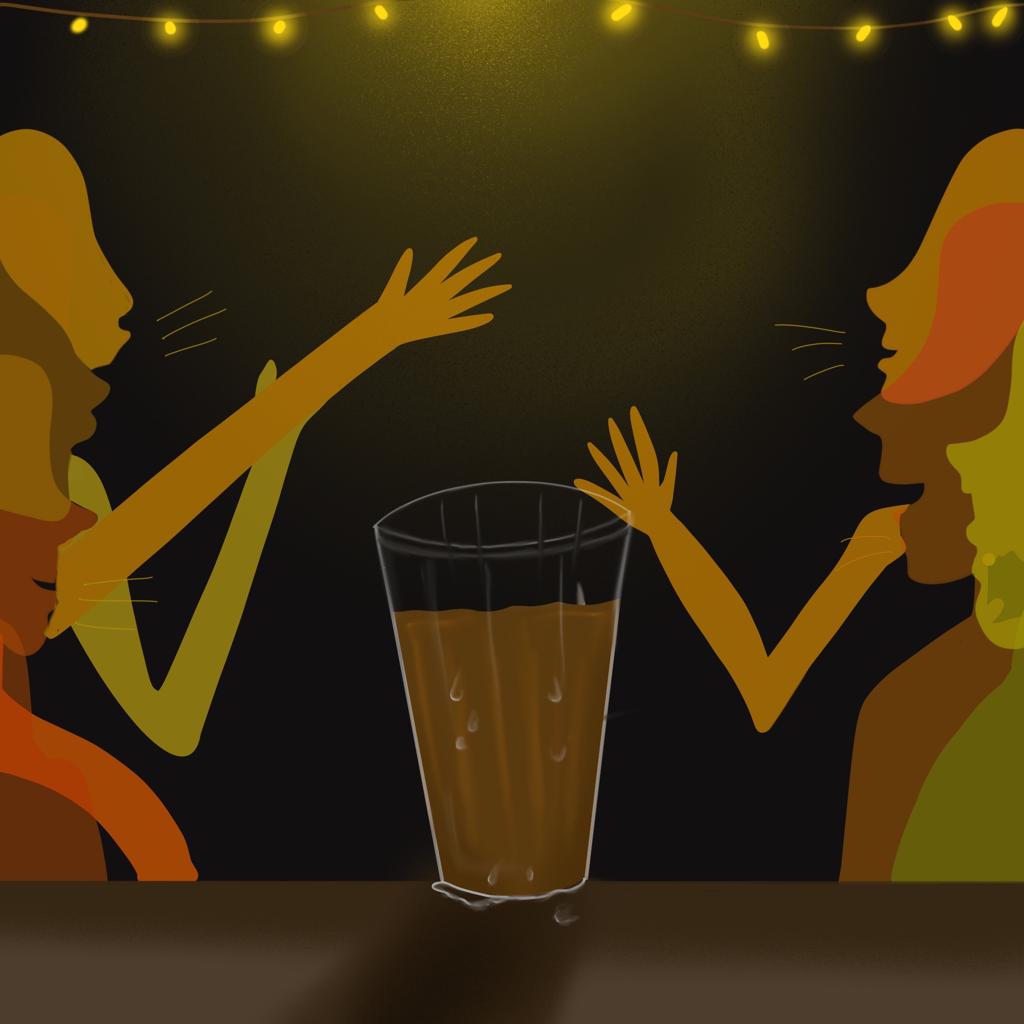Seeing Sorrow: Visual Art in Political Protest
By Mohan Rajagopal, UG’24 Trigger Warnings: Oppression, Violence, Nudity Over the past few months, the student

By Saadia Peerzada, UG’22

Friendships are derived from a mutual adoration of each other’s company. The strings of pleasure and obligation that crop up in romantic relationships and family are hardly a factor. It finds one of its best expressions in university where young people live around and with each other. From needing support systems to having similar interests, university students find various ways of creating friendships.
Support Systems and Facing Challenges
Charvi Koul, 20, is a student of psychology at Ashoka, and she delves into the communal nature of living and working on campus. “Your friends are the people you can rely on, talk to when you are not connected with your family. You can’t survive on your own. You can be independent, sure, but you’ll eventually need to rely on others.”
Charvi is a part of a Fiction Workshop that functions through peer review. As she workshops her peers’ work, she explains, “Generally, universities encourage team activities like sports, clubs and societies. That ends up with you meeting new people that you may have things in common with.” Drawing on the work she was doing in collaboration with other students, she mentions, “Other colleges usually have exams but a lot of our graded work is group projects or assignments. You are encouraged to talk to people and make new bonds. Other educational institutes don’t put such an effort into group work. Their pedagogy is too focused on the individual.”
When universities focus on grade rivalry, it is hard to foster care. In Ashoka, there is often no relative grading, it is easier to keep away the nasty feelings created by unhealthy competition. Nazish Ashraf, a PhD student at Ashoka, agrees, saying, “Competition is a huge barrier to building relationships. But Ashoka allows space for that barrier to lessen.”
Relying on other people when one is away from home and being on a residential campus that is located in a remote place makes friendships absolutely crucial. While the reasons can also vary from having interesting discussions to being on a too-small campus, the instinct to rely and be relied on remains. Shahid, 20, Political Science major at Ashoka, reflects on the nature of conversations he’s had in Ashoka, “Here, you can delve deep and have charged discussions. You won’t be able to do that in an environment that doesn’t allow such a degree of free speech, say, not even in the metro. I think the ability to have those kinds of conversations is what allows us to build meaningful as well as cerebral friendships.”
Shahid’s friend chimes in, saying “Academic collaboration is another way the university facilitates friendship. Working on presentations together or on group projects leads to deeper friendships. To be honest, even sharing a cigarette can lead to a friendship.” He smiles as he says this. This prompts another person at the dhaba to say, “There are specific spots people go to a lot and end up saying hi often, like the SR. There is a cyclic progression of knowing people, if I know someone, that person introduces me to the next and so on. You end up knowing a lot of people as the campus is small and you end up seeing the same people around a lot.”
Rashmi Sriraghavan, 21, a student of Economics at Ashoka delves into the freeing nature of friendships, “There aren’t as many expectations from platonic relationships as there are with romantic ones. The media doesn’t tell us what it ‘has‘ to be so it is purer.” Platonic love is largely not given the same importance as romance in the media but Rashmi looks at this phenomenon differently. This doesn’t discount the need to have healthy friendships in the media but provides a unique perspective on the role of media in how we think about relationships.
Smaller Bubbles
Khushi Bhatia, 20, Psychology major at Ashoka, sees the campus as a place that facilitates meeting and befriending people. “Coming to university is full of challenges. Figuring out the newness, the mess, the clubs and societies, all the facilities, it is a lot. And as everyone is going through the same thing, we learn to figure it out together.”
Muskaan Chaudhry, 20, a student of English at Ashoka adds another view, “This place can be quite toxic, it is a closed space, a bubble. So you need to find your people. But that can be good too. You end up talking to people you wouldn’t have otherwise and get to know things about them you wouldn’t have guessed. And being on a residential campus makes you observe people in their different ways of being.”
Rashmi adds to this line of thought, saying “At Ashoka, there are so many students that even if you think someone’s interesting, it gets awkward to approach them. Which is sad because we have such a great community. The clique culture at Ashoka is also sad,” she laughs, “it gets pretty isolating.”
While university is a place of growth and developing friendships, this process is also fraught with the tensions of hyper-connectivity induced isolation or having difficulty placing yourself in a specific group of people. However, the promise of strange ways to make friends remains: through group projects, at the SR, via charged discussions or just through figuring out the washing machine together as you settle into college.